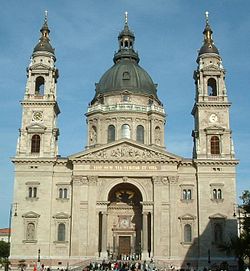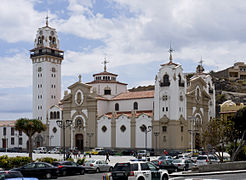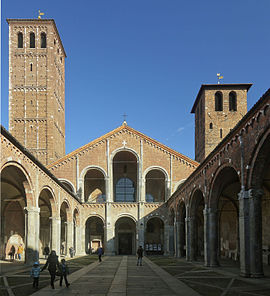
noun
- an early Christian or medieval church of the type built especially in Italy, characterized by a plan including a nave, two or four side aisles, a semicircular apse, a narthex, and often other features, as a short transept, a number of small semicircular apses terminating the aisles, or an atrium. The interior is characterized by strong horizontality, with little or no attempt at rhythmic accents. All spaces are usually covered with timber roofs or ceilings except for the apse or apses, which are vaulted.
- one of the seven main churches of Rome or another Roman Catholic church accorded the same religious privileges.
- (in ancient Rome) a large oblong building used as a hall of justice and public meeting place.
noun
- a Roman building, used for public administration, having a large rectangular central nave with an aisle on each side and an apse at the end
- a rectangular early Christian or medieval church, usually having a nave with clerestories, two or four aisles, one or more vaulted apses, and a timber roof
- a Roman Catholic church having special ceremonial rights
1540s, from Latin basilica “building of a court of justice,” and, by extension, church built on the plan of one, from Greek (stoa) basilike “royal (portal),” the portico of the archon basileus, the official who dispensed justice in Athens, from basileus “king” (see Basil). In Rome, applied specifically to the seven principal churches founded by Constantine.
A large Roman Catholic or Eastern Orthodox church building. A basilica is built with several parallel aisles separated by rows of columns, ending in a semicircular structure, the apse. Saint Peter’s Basilica is the church of the Vatican in Rome.
 Liberal Dictionary English Dictionary
Liberal Dictionary English Dictionary


